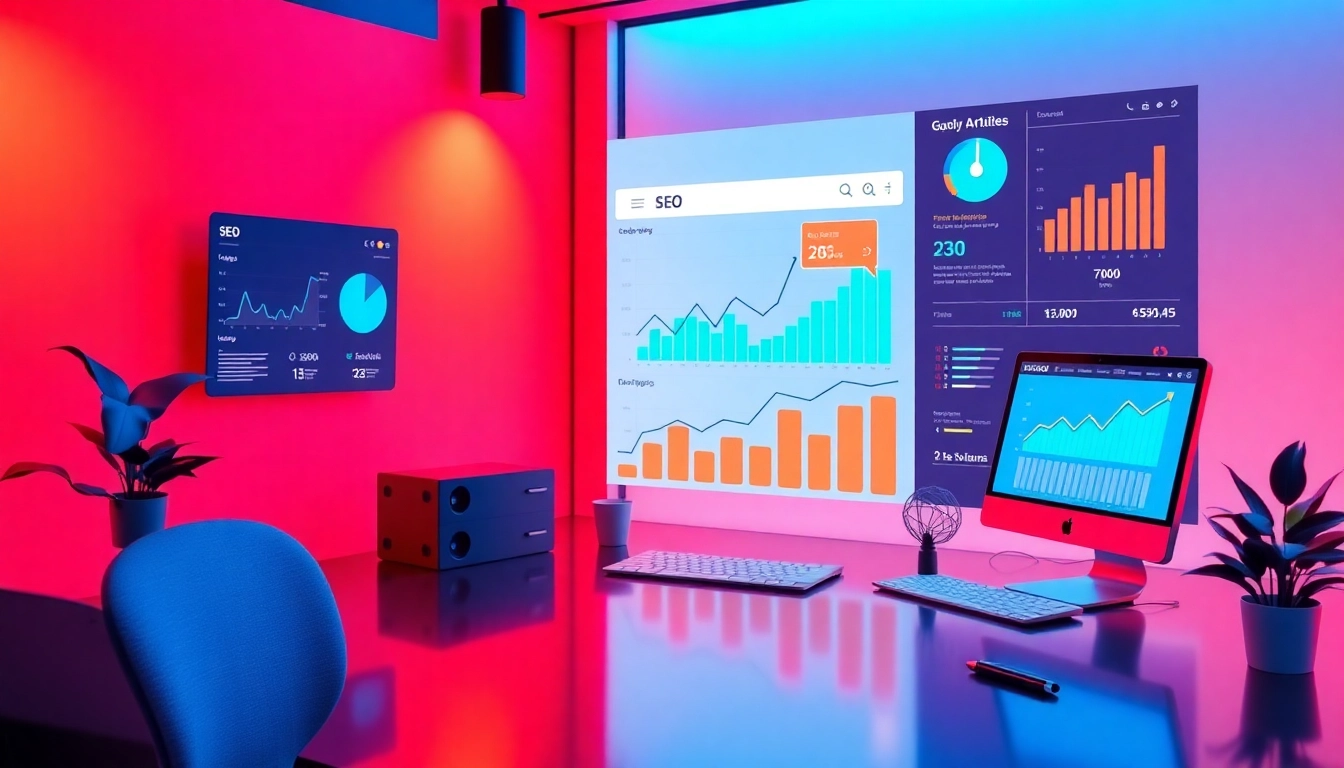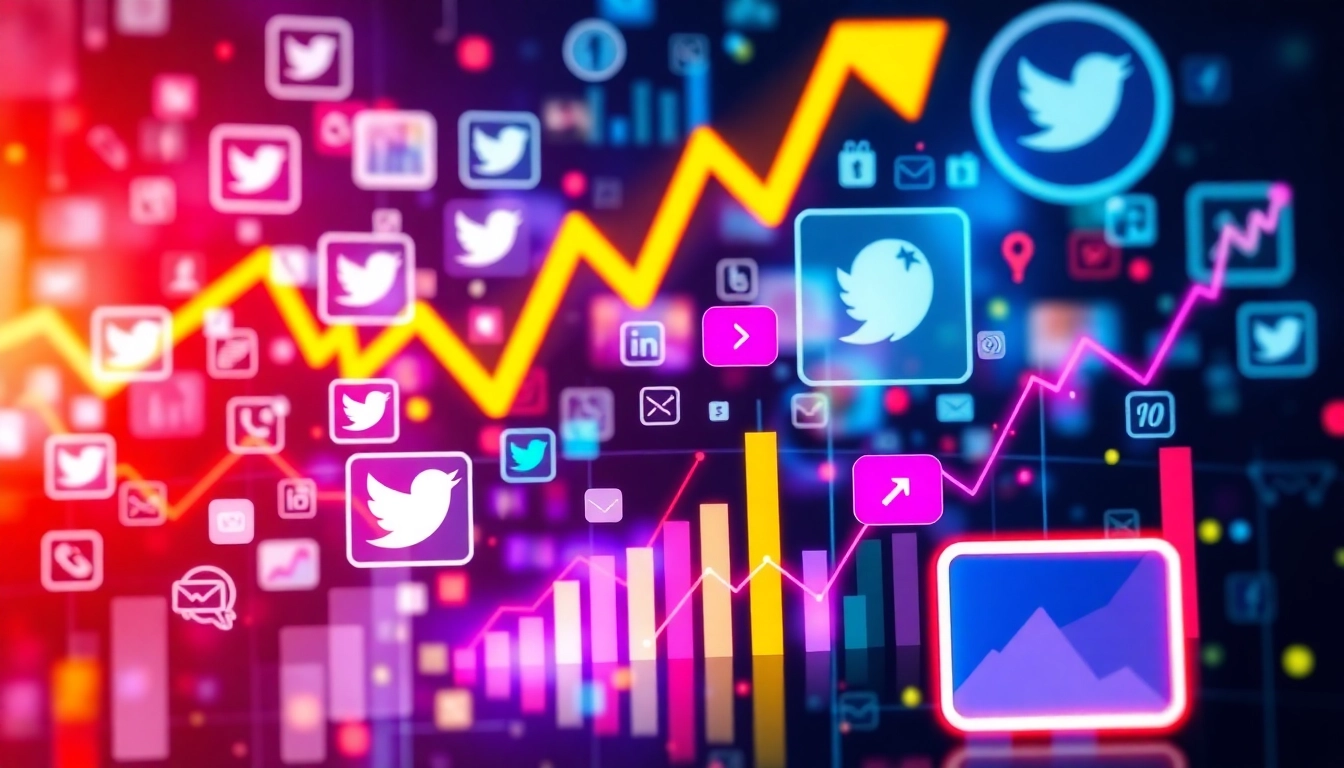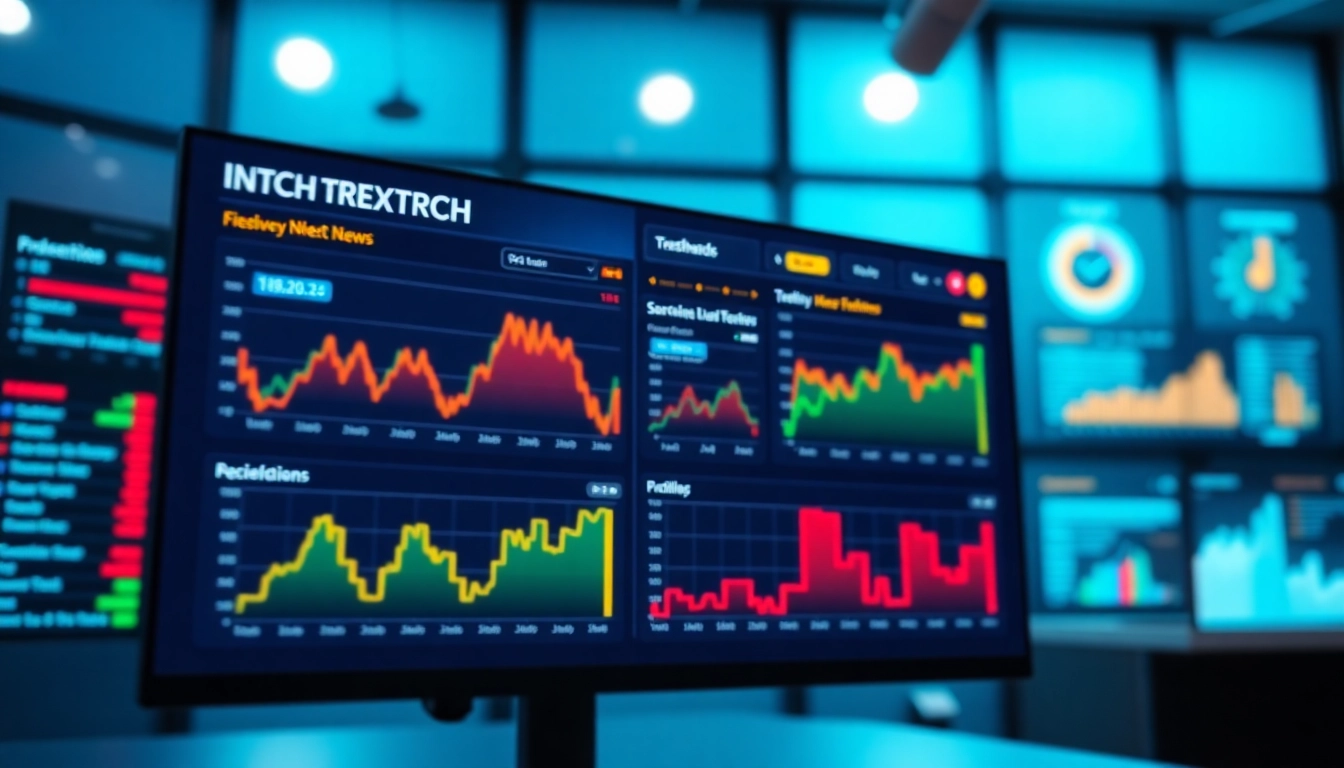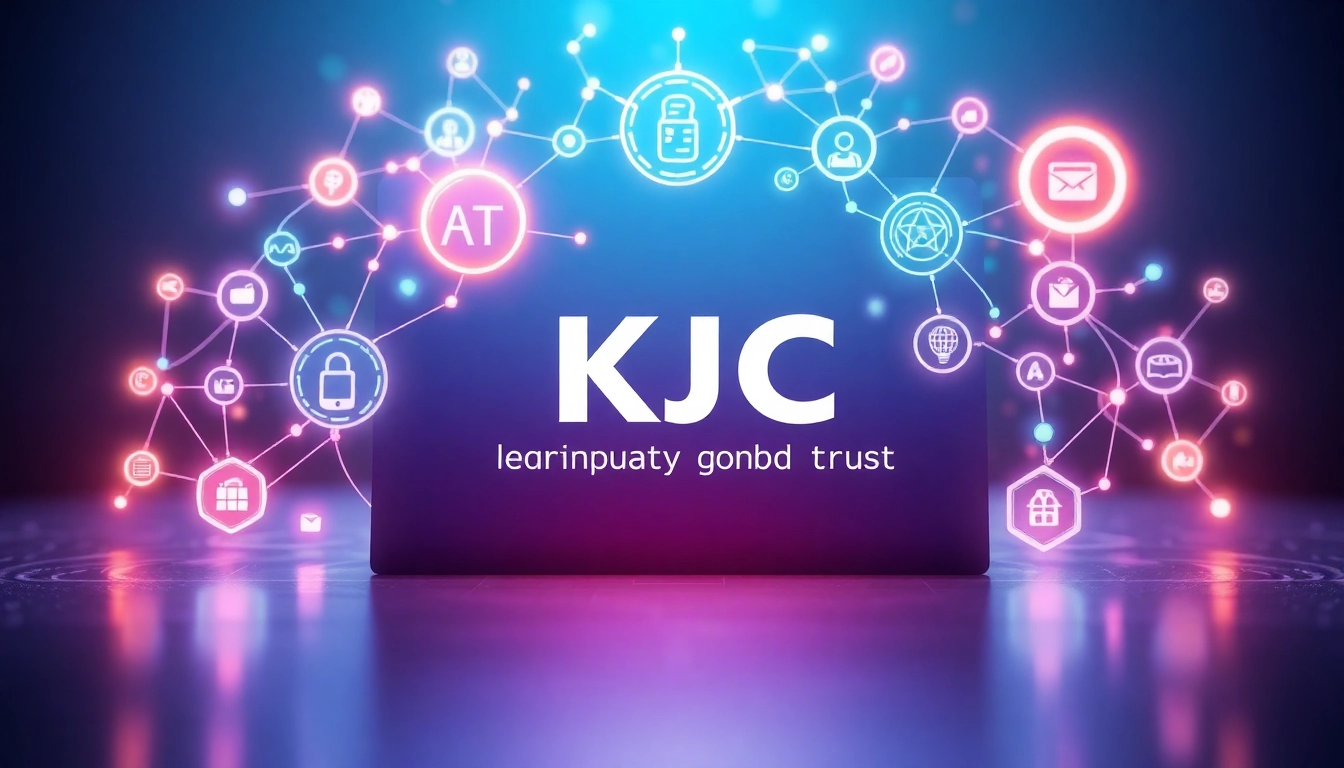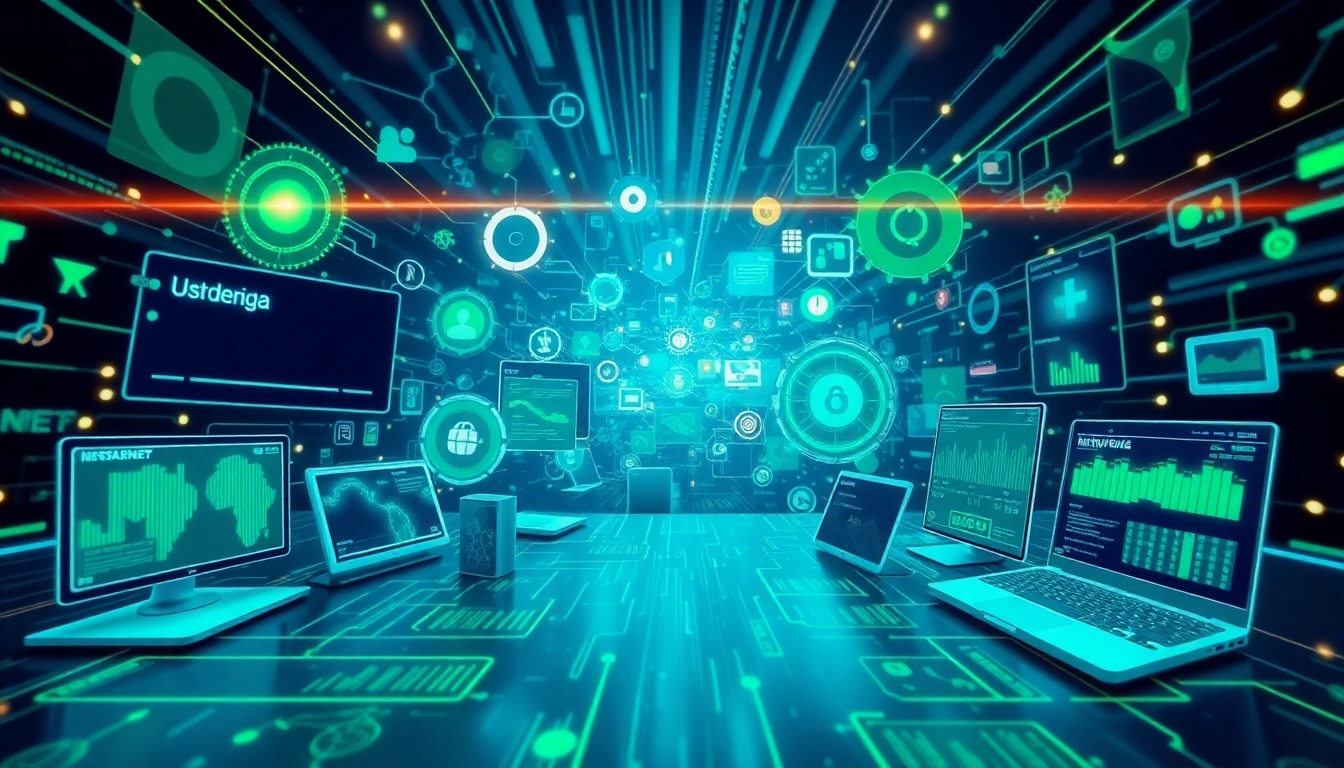Understanding Technology: Definition and Scope
What is Technology?
Technology can be intricately defined as the application of scientific knowledge to solve practical problems, primarily within industry or engineering. It encompasses a broad spectrum of tools, systems, and techniques. According to technology definitions, it serves to innovate and transform the way we tackle challenges in day-to-day life. The essence of technology lies in its ability to enhance efficiency and effectiveness in various domains.
The Evolution of Technology Over Time
Historically, technology has undergone monumental transformations. From primitive tools in ancient civilizations to today’s advanced digital ecosystems, each era has introduced groundbreaking innovations. The Industrial Revolution marked a turning point with the transition from manual production to mechanized processes. Fast forward to the Information Age, where computing and digital advancements accelerated the globalization and connectivity of societies.
Today, the rapid pace of technological evolution is evident in technologies such as AI, robotics, and biotechnology. Each new innovation builds upon the previous components, shaping a world that is increasingly reliant on technological infrastructures.
Different Types of Technology in Today’s World
Technology can be categorized into several distinct types:
- Information Technology (IT): Encompasses computers, networks, and databases crucial for data storage and communication.
- Communication Technology: Devices and platforms that facilitate interaction, such as smartphones and social media.
- Biotechnology: Applications of biology and technology to develop products and processes in health and agriculture.
- Environmental Technology: Innovations aimed at improving the sustainability and health of our natural environment.
- Mechanical Technology: Involves machine design and manufacturing processes relevant to various engineering fields.
The Role of Technology in Society
Technology’s Impact on Daily Life
In our everyday lives, technology plays a crucial role, dramatically enhancing convenience and efficiency. From the smartphones we use for communication to smart home devices that automate chores, technology transforms regular routines. For example, advanced health-monitoring wearables empower individuals to engage in preventive healthcare, thus promoting a healthier lifestyle. Moreover, e-commerce platforms allow for seamless shopping experiences, fundamentally changing consumer behaviors and preferences.
Technology and Communication
Communication technology has revolutionized how we interact. The advent of social media has bridged gaps, enabling individuals across the globe to connect instantly. Platforms like Facebook, Twitter, and WhatsApp foster social relationships, but they also raise issues surrounding privacy and misinformation. Understanding the balance between connectivity and security is essential as we navigate this tech-centric communication landscape.
Education and Technology Integration
The integration of technology into educational practices has reshaped learning methodologies. Digital classrooms, online courses, and interactive learning tools enhance educational accessibility and engagement. For instance, platforms like Coursera and Khan Academy provide global access to high-quality educational content, empowering learners regardless of geographical limitations. However, the reliance on technology also poses challenges, such as ensuring equal access and addressing screen addiction among students.
Emerging Technology Trends to Watch
AI and Machine Learning
Artificial Intelligence (AI) and machine learning are at the forefront of technological advancement. They drive processes across various sectors, from automating mundane tasks in businesses to providing personalized experiences in consumer services. The potential for AI to analyze vast datasets enables improved decision-making and predictive analytics, further enhancing operational efficiency.
Applications of AI, such as intelligent virtual assistants and advanced data processing systems, are becoming commonplace. However, ethical implications and concerns regarding bias in AI algorithms must be addressed to ensure fair and responsible technology adoption.
Blockchain and Cryptocurrency
Blockchain technology has gained prominence beyond cryptocurrencies like Bitcoin, heralding a new era of secure and transparent transactions. Its decentralized nature mitigates risks associated with data breaches and fraud, fundamentally reshaping industries such as finance, supply chain, and healthcare. The emergence of smart contracts bolsters operational efficiencies by automating processes without intermediaries.
As businesses increasingly leverage blockchain, challenges related to scalability, regulatory frameworks, and public perception need careful navigation for broader adoption.
Internet of Things (IoT)
The Internet of Things (IoT) connects everyday devices to the internet, transforming products into smart solutions. From smart thermostats to connected cars, IoT applications enhance convenience and productivity. Industries like agriculture utilize IoT technology for precision farming, optimizing resources and yield. Meanwhile, IoT in urban planning leads to the development of smart cities, improving livability and sustainability.
However, the proliferation of IoT devices raises significant security and privacy concerns that necessitate robust cybersecurity measures to safeguard users’ data.
Challenges and Ethical Considerations in Technology
Data Privacy and Security Issues
The increased reliance on digital solutions has heightened concerns about data privacy and security. High-profile data breaches can compromise sensitive personal information, leading to a loss of trust in digital platforms. Organizations must prioritize safeguarding data through stringent cybersecurity measures, transparency in data usage, and compliance with regulations like GDPR.
Technological Inequality
While technology can empower individuals and organizations, it can also exacerbate existing inequalities. The digital divide—referring to the gap between those with access to technology and those without—poses significant challenges. In many regions, inadequate internet infrastructure limits access to educational and economic opportunities, highlighting the need for concerted efforts to bridge this divide. Policies and initiatives that promote digital literacy and expand access are vital to ensuring equitable technological benefits.
Automation and Job Displacement
Automation is transforming industries and redefining the future of work. While technology can enhance productivity and lower operational costs, it also leads to job displacement in various sectors. Workers in roles susceptible to automation must be equipped with skills to adapt to this changing landscape. Reskilling and upskilling programs are essential components in preparing the workforce for emerging job roles that technology creates, rather than eliminates.
The Future of Technology and Its Potential
Innovations That Could Change the World
The future of technology promises innovations that could reshape entire industries and societies. Consider the potential of quantum computing, which could revolutionize data processing and analysis, significantly outperforming traditional computers. Developments in renewable energy technologies offer prospects for sustainability, potentially mitigating climate change effects. Moreover, advancements in medical technology, such as gene editing and telemedicine, hold the potential to transform healthcare delivery and patient outcomes.
Collaborative Technology Solutions
With the rise of virtual and augmented reality technologies, collaborative platforms are evolving. These technologies enable remote teams to work synergistically regardless of physical location, enhancing productivity and innovation. Tools that integrate collaboration and communication are being optimized for various industries to facilitate efficiency and creativity, underscoring the growing importance of teamwork in a highly interconnected world.
Envisioning a Tech-Savvy Society
As technology continues to integrate into every facet of life, envisioning a tech-savvy society becomes crucial. Educators, policymakers, and industries must work collaboratively to foster an environment where technology serves to enhance human capabilities rather than replace them. Encouraging critical thinking around technology’s implications will empower individuals to navigate its myriad opportunities and challenges responsibly.



